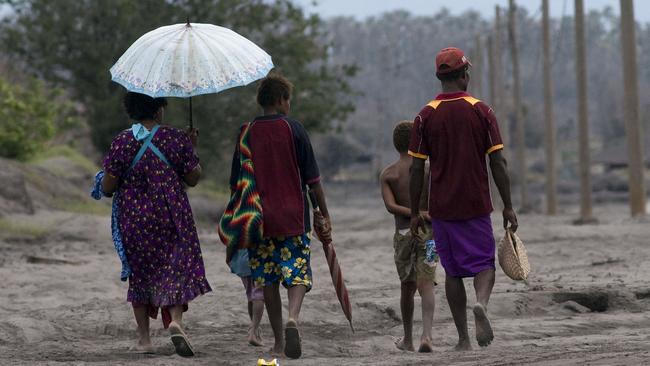Polio cases raise alarm in Papua New Guinea amid vaccine drive
Isolated cases of polio in Papua New Guinea have health authorities on alert as they scramble to vaccinate against the virus.

Papua New Guinea has raised the alarm over a polio outbreak in Port Moresby and Lae after samples of the virus were found in wastewater and cases confirmed in two healthy children.
The PNG government first reported its wastewater testing on Tuesday, which follows a previous contained outbreak in 2018. On Thursday it was confirmed to have been detected in the stool samples of two children who are asymptomatic.
The World Health Organisation, United Nations Children’s Fund (UNICEF) and Australian government are assisting in rapid immunisation efforts aimed at at-risk children.
Less than half of all children in PNG are vaccinated for polio, driving the risk of further outbreak.
UNICEF’s PNG representative Veera Mendonca said the humanitarian aid group would assist in disease surveillance, vaccine delivery, health communication and vaccine promotion.
“Technical specialists in immunisation, cold chain, advocacy, and social behaviour change are already deployed at national and provincial levels,” Dr Mendonca said.
“Together, we can stop this outbreak and keep Papua New Guinea polio free — for our children, for our families, and for our communities.
‘We have to use the polio outbreak as an opportunity to increase our routine immunisation rates … Only 47 per cent of children are immunised. In some districts, it’s even lower at 8 per cent.”
The 2018 outbreak caused 26 confirmed cases across nine provinces before it was contained a year later as a result of mass vaccination.
Indonesia, where the current strain originated, also just grappled with a polio outbreak but has a far higher vaccination rate at 90 per cent.
“The bottlenecks and key challenges have been identified for specific districts and provinces, which are also being addressed,” Dr Mendonca said.
“At the moment, with all that is there, I am fairly certain the outbreak will be contained.
“It needs everyone to work together, from national to district and provincial authorities, and all partners to support the initiative so that we’re not only focused on campaigns, but focused on strengthening routine immunisation.”
Key to this will be embedding vaccine drives in community centres like church groups.
“Populations are very dispersed, … many (people) are not reached because they are not able to come to the health centres,” Dr Mendonca said.
“We have also limited access to clean water, and it increases chances of the virus spreading between countries and between cities. This virus, genotypically, is the virus that was in the outbreak in Indonesia.
“Right now, our children are exposed to vaccine preventable diseases, and that’s not acceptable. This is an opportunity to really move ahead.”
The virus’ presence in wastewater could indicate silent transmission within the community.
Polio causes paralysis and death, with children under five at greatest risk. While the vast majority of cases are asymptomatic, it is highly contagious and incurable.
“Australia is working closely with Papua New Guinea, the World Health Organization and UNICEF to help respond to the detection of vaccine-derived poliovirus. We’re supporting PNG’s National Polio Response Plan, including through targeted technical assistance,” a Department of Foreign Affairs and Trade spokesperson.
“Australia is proud to be PNG’s partner of choice and we will continue to work with PNG to support the health and development of its people, and to ensure a healthy region.”


To join the conversation, please log in. Don't have an account? Register
Join the conversation, you are commenting as Logout